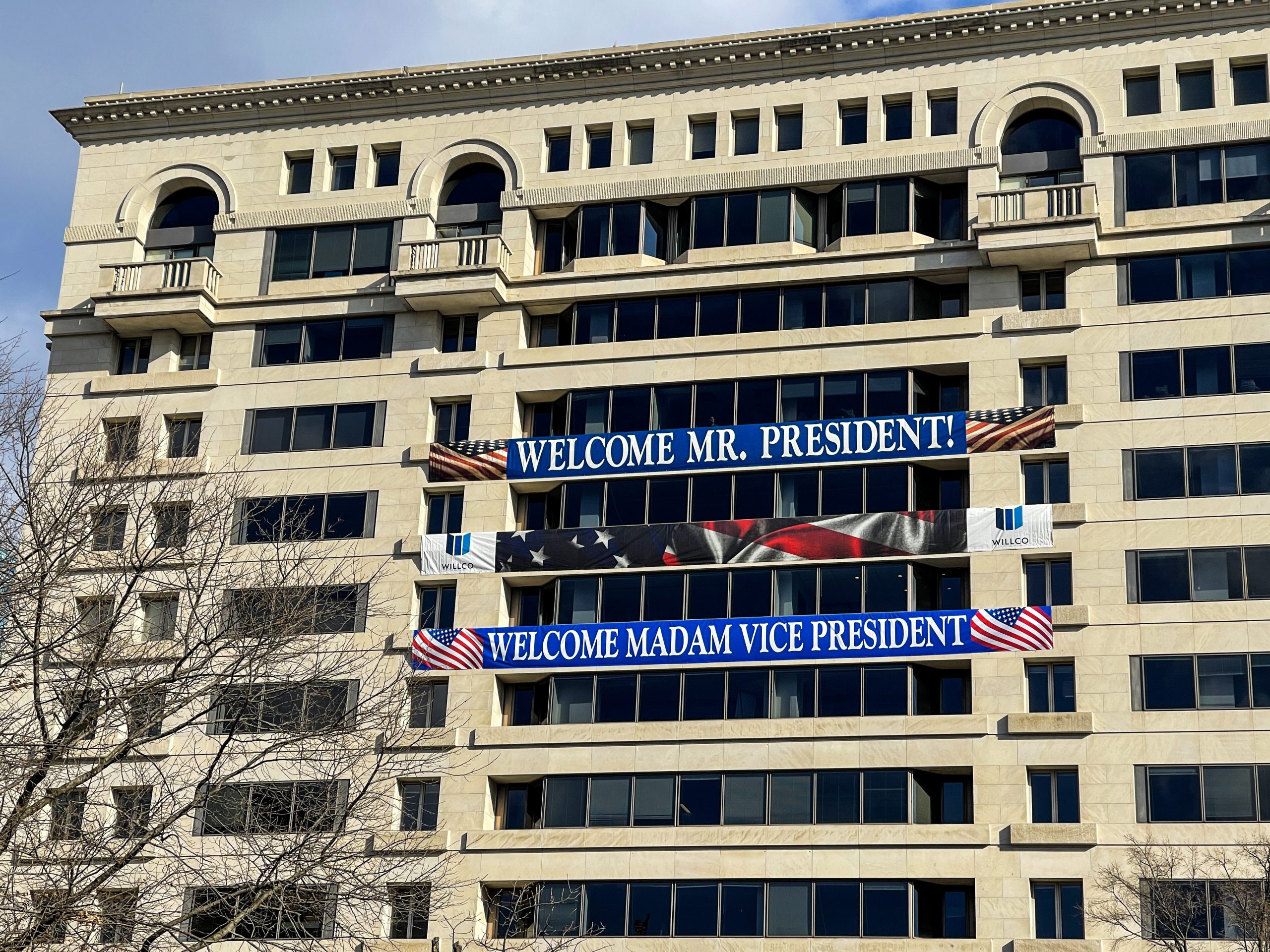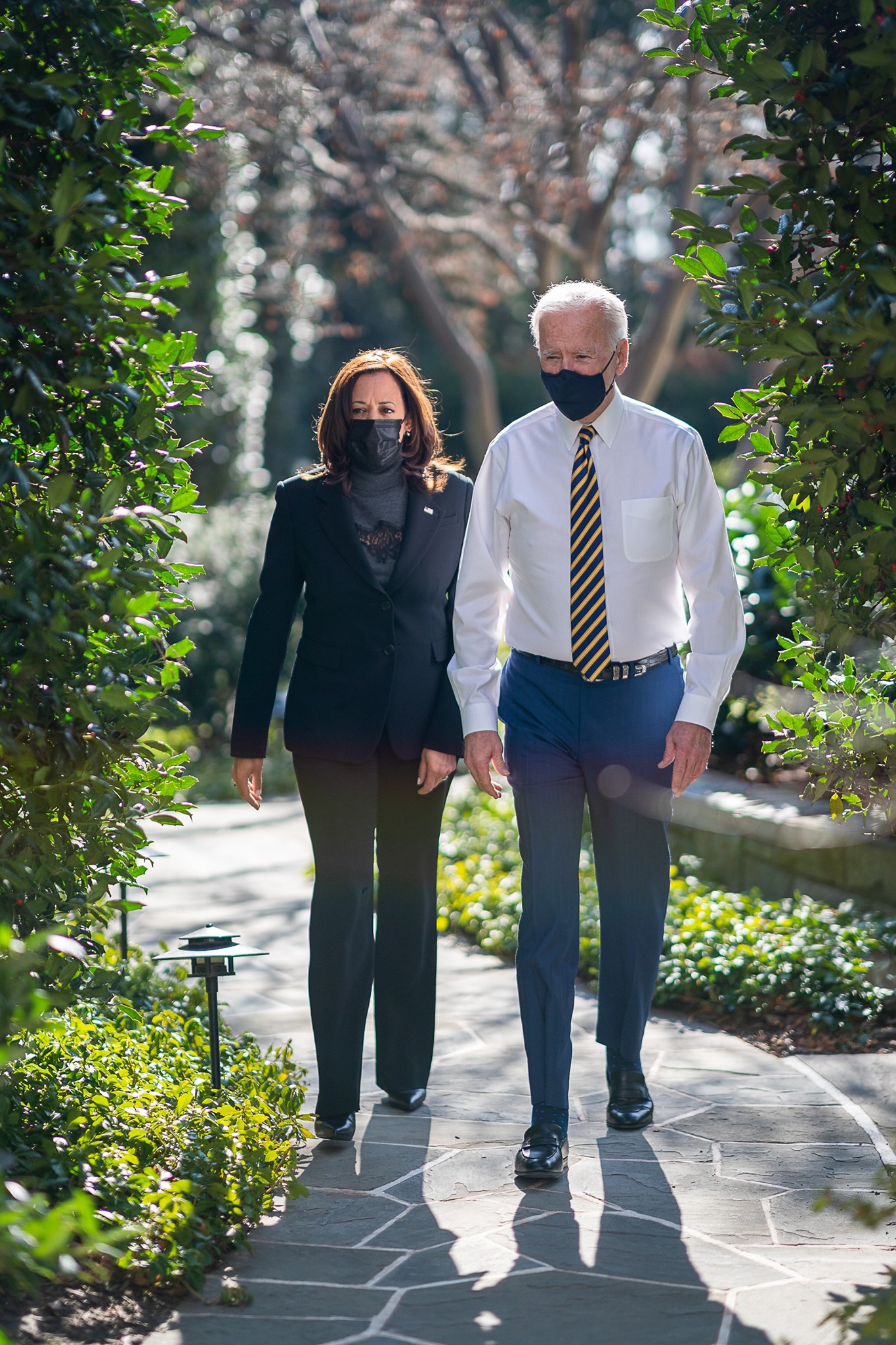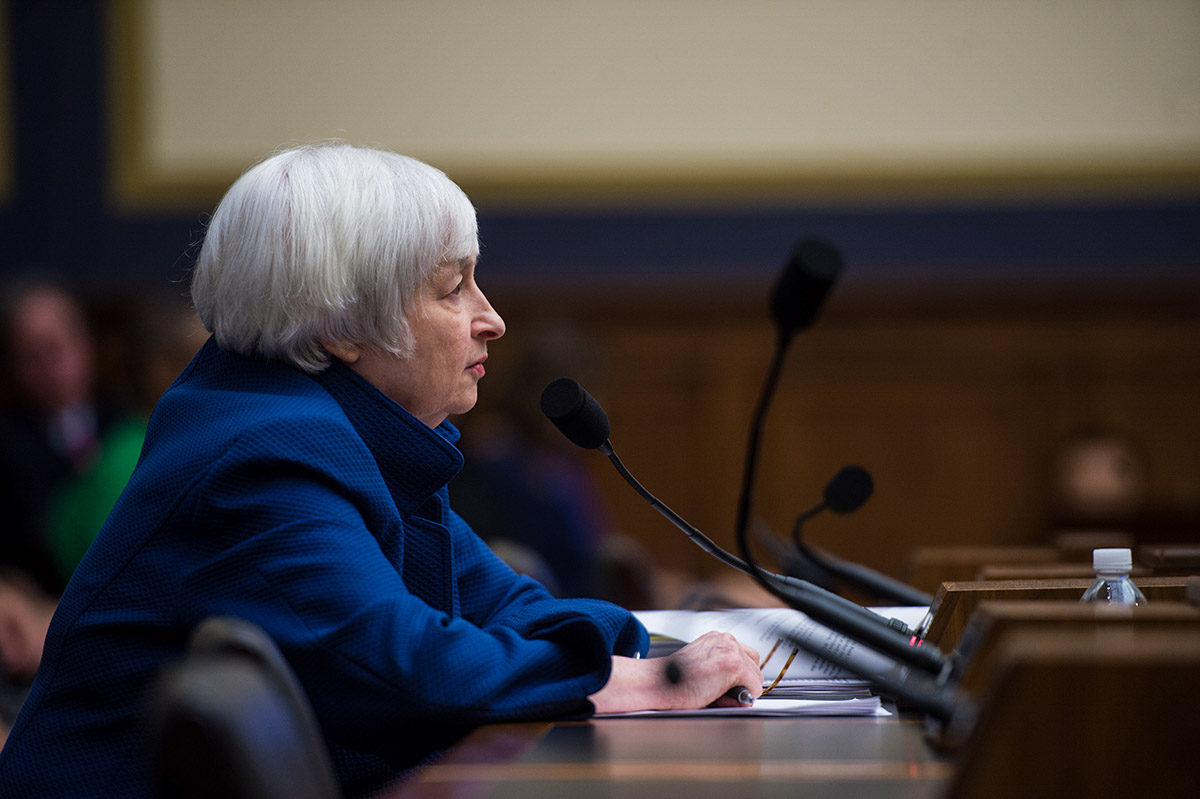Indianz.Com > News > Dispute over COVID-19 relief for tribal nations spills into Biden administration

Dispute over COVID-19 relief for tribal nations spills into Biden administration
Monday, January 25, 2021
Indianz.Com
WASHINGTON, D.C — With one of the debacles of the Donald Trump era still raging in the courts, Indian Country will be paying close attention as the Department of the Treasury gains new leadership.
Economist Janet Yellen is sailing toward confirmation as 78th Secretary of the Treasury following unanimous support from a key U.S. Senate committee on Friday. But while no one on the panel directly asked her about COVID-19 relief for tribal nations, it’s clearly on the radar of Democratic President Joe Biden and his burgeoning Cabinet.
“I recognize that this crisis has hit tribal communities particularly hard and we have to ensure that they are getting the assistance that they need,” Yellen said of the pandemic in response to a questions from the committee.
Just a day before the Senate Committee on Finance advanced Yellen’s nomination, a hearing in federal court showed why the Biden administration is concerned. Three tribal nations that were shortchanged millions of dollars in COVID-19 relief by Trump said they were eager to press forward with their cases, even more so now that since someone new is in charge of the White House.
“Delay in our view is not an option,” said Pilar Thomas, an attorney for the Shawnee Tribe, whose population base in Oklahoma was brazenly zeroed out by the Trump team when doling out COVID-19 funds. “We think it’s important for us to keep moving forward.”
“Time is still of the essence,” added Thomas, who is a citizen of the Pascual Yaqui Tribe.
“Our client still continues to incur costs.”
Attorneys for the Miccosukee Tribe and the Prairie Band Potawatomi Nation expressed similar sentiments. The Miccosukees in Florida were also treated as having zero population by former Secretary of the Treasury Steven Mnuchin, resulting in a shortfall of estimated $2 million, while the Kansas-based Prairie Band lost out on an additional $7.6 million because of Treasury’s bungling of the coronavirus relief fund for tribal governments. “We would encourage the court to keep this case going so that we can get it resolved it as soon and possible,” said George Abney, an attorney for the Miccosukee Tribe. But the federal government had little to offer in terms of resolution during the teleconference, which took place last Thursday, a day after Biden was sworn into office as the 46th president of the United States. That’s because Treasury hasn’t yet decided whether the three tribes should get more COVID-19 relief — or whether the new administration will continue to defend the position of the past. “Treasury will still need a little bit of time, in light of the transition, to determine what its position is going to be,” said Kuntal Cholera of the Department of Justice. “It will be a really delicate situation,” Cholera said of COVID-19 matters on incoming Secretary Yellen’s plate. Given the uncertainty, he said “it might make sense to halt what we do here,” especially since there’s an even bigger cloud hanging over the Biden bunch.Shawnee Tribe v. US Treasury;
— Chief Ben Barnes (@ChiefBarnes) June 22, 2020
Rep. Markwayne Mullin and 12 congressional leaders author a letter supporting tribal nations against faulty Treasury formulation. pic.twitter.com/djWspi1LIF

Despite the uncertainty, Mehta is intent on moving forward with the underfunding dispute, as the tribal plaintiffs requested. He ordered government attorneys to submit a status report by February 15, to be followed up by a hearing on February 17. The administrative record, meaning the documents that a federal agency utilized in arriving at its actions, is due February 18. For now, Mehta has issued a preliminary injunction in favor of the Shawnee Tribe. The order freezes $12 million in CARES Act funds, pending resolution of the case, whenever that may be. During the teleconference last week, Mehta said he is open to extending the order to include the Miccosukee Tribe and the Prairie Band Potawatomi Nation. He specifically asked them for the dollar amounts they are seeking, which could bring the total amount frozen to more than $21 million. Mehta acted after the D.C. Circuit, on January 7, ruled that the Shawnees were shortchanged when Treasury treated the tribe’s population as zero. As a result, the tribe only got $100,000 from the first round of COVID-19 payments. “While other tribes received millions, the U.S. Treasury Department flagrantly shortchanged the Shawnee Tribe from its fair share of the CARES Act coronavirus relief funds, causing hardship in our ability to fully care for our tribal citizens sadly affected by this deadly virus,” Chief Ben Barnes said after the ruling. The 15-page decision from the D.C. Circuit was unanimous but Judge Merrick Garland did not participate in the outcome. He has since been nominated to serve as Attorney General by President Biden, meaning he will be overseeing the Department of Justice’s litigation in the CARES Act cases. A confirmation hearing has not yet been scheduled.It's the case that never ends. The nation's highest court has agreed to hear a bitter dispute over $534 million in #COVID19 relief going to Alaska Native corporations. This is the second Indian law case on the Supreme Court's docket. #CARESAct #Coronavirus #CoronavirusReliefFund pic.twitter.com/NegdEdyY4V
— indianz.com (@indianz) January 8, 2021

Senate Committee on Finance Notices
Hearing to Consider the Anticipated Nomination of the Honorable Janet L. Yellen to Secretary of the Treasury (January 19, 2021)Open Executive Session to Consider Favorably Reporting the Nomination of the Honorable Janet L. Yellen, to be Secretary of the Treasury (January 21, 2021)
Search
Filed Under
Tags
More Headlines
Native America Calling: Euchee food, whale hunting and young gardeners on The Menu
Cronkite News: Navajo psychiatrist addresses mental health needs
Chuck Hoskin: Tell the whole story about the theft of tribal lands
Native America Calling: A sample of Native Guitars Tour 2024
Cronkite News: Native organization carries on horse traditions
Native America Calling: How Native literature is changing the mainstream narrative
Native America Calling: No ordinary animal
Native America Calling: Safeguards on Artificial Intelligence
NAFOA: 5 Things You Need to Know this Week
Chuck Hoskin: Cherokee Nation takes the lead for our environment
Native America Calling: Earth Day assessment for Native peoples
Cronkite News: Gathering addresses ‘epidemic’ among Native people
VIDEO: Cody Desautel on tribes and federal forest management
AUDIO: Legislative Hearing on Discussion Draft of Forest Management Bill
Native America Calling: Remembering the 1974 Navajo border town murders
More Headlines
Cronkite News: Navajo psychiatrist addresses mental health needs
Chuck Hoskin: Tell the whole story about the theft of tribal lands
Native America Calling: A sample of Native Guitars Tour 2024
Cronkite News: Native organization carries on horse traditions
Native America Calling: How Native literature is changing the mainstream narrative
Native America Calling: No ordinary animal
Native America Calling: Safeguards on Artificial Intelligence
NAFOA: 5 Things You Need to Know this Week
Chuck Hoskin: Cherokee Nation takes the lead for our environment
Native America Calling: Earth Day assessment for Native peoples
Cronkite News: Gathering addresses ‘epidemic’ among Native people
VIDEO: Cody Desautel on tribes and federal forest management
AUDIO: Legislative Hearing on Discussion Draft of Forest Management Bill
Native America Calling: Remembering the 1974 Navajo border town murders
More Headlines